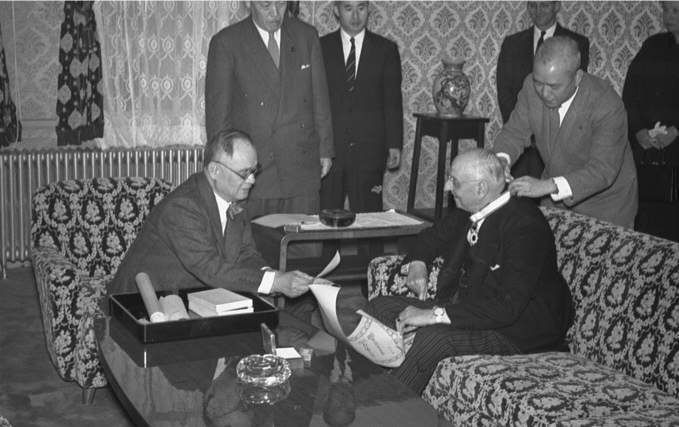Practices: (4) Sustained engagement with situations and issues
Buchman’s efforts at building unity were not always successful. But when they were influential, there was often a backstory. For example, his post-war work in Germany had roots in his work in the country over previous decades – he first visited the country in 1903.
His first visited Japan in 1919. Here is a picture of his being awarded the Japanese Order of the Rising Sun (1956).
There is a value in being embedded in situations over time, in getting to know a city or country well, and getting to know the key players. Knowledge of history is also important – and here the discipline of reading is important for developing understanding. Without in-depth knowledge, one’s responses to a situation can be superficial. Many of Buchman’s supporters made efforts to acquaint themselves with the ebbs and flows of history in particular regions or countries – the conflicts, moments of unity, the history of faith and spirituality. Such work helps to develop a comprehensive vision.
Linked to this, the translation of concepts from one culture to another requires sensitivity. Concepts that exist in one society do not always exist in another or have a slightly different meaning. Buchman took ideas and metaphors current in popular culture and sought to give them a deeper meaning. One could imagine, in our own day, his taking an idea like ‘artificial intelligence’ and suggesting that there is a very real moral and spiritual intelligence available to all when people listen to God and build unity with others.
Buchman also talked about the value of being ‘flexible to the direction of God’s Holy Spirit’. He meant not having preconceived ideas about people or situations, but seeking to align himself with what he thought God was doing. The task was to develop a receptive attitude of mind – an attitude that was not so much about achieving as receiving.

